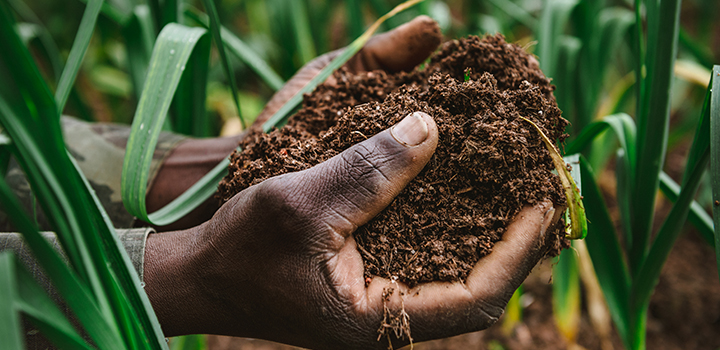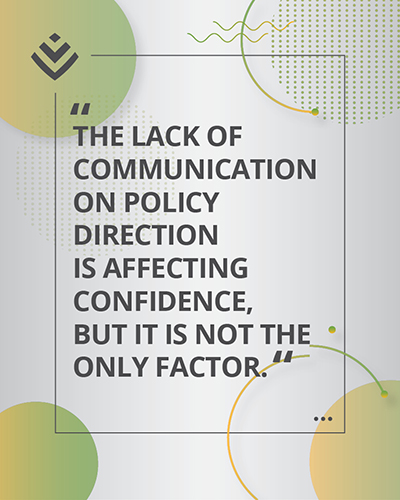Land expropriation | No clear skies on land expropriation yet

Last year investor confidence in SA was rattled by proposals to seize land without compensation. This year, policy discussions are still under way. At the end of July, the presidential advisory panel on land reform and agriculture released a report recommending a wording change to Section 25 of the Constitution.
In June, the Agricultural Business Chamber (Agbiz) released its second-quarter Agribusiness Confidence Index, which showed that confidence had weakened to 44 index points from 46 in the first quarter.
Some of the major factors it cited for this were erratic weather conditions, which led to a reduction in summer crop plantings, and the lack of clarity on land reform policy and water rights, causing despondency in the sector.
“A persistent decline in confidence is typically followed by a similar movement in investment, but fortunately this has not been the case in South African agriculture thus far,” Agbiz said.
Just before the panel’s report was released, we caught up with Agbiz Chief Economist, Wandile Sihlobo, who is a member of the advisory panel on land reform and agriculture. We used the opportunity to discuss the latest developments in the debate around land expropriation and to what extent it is affecting investment in land, agriculture and food production.
Discussions over land expropriation have gone quiet since the May election. Has it been shelved?
Sihlobo: The land reform policy debate has not stalled, although it is no longer making headlines. A lot of work is being done on it at the back end. I am a member of President Cyril Ramaphosa’s advisory panel on land reform and agriculture, which recently presented him with a report containing various recommendations on how to revitalise agriculture in SA and how land reform could potentially be carried out. (The panel’s report was released for comment on July 28, just after this interview).
How will Section 25 of the Constitution change?
Sihlobo: At this point, I am not aware of the draft amendment to Section 25 of the constitution. A committee was established before the May election to consider it, but the process has not been completed. Whatever wording is proposed has to go to the National Assembly for discussion and approval. It is impossible to predict what the final amendments (if there are any) will say.
What is the thinking within the ANC, post-election?
Sihlobo: My general impression of the ANC’s proposals in its election manifesto is that they are pragmatic and encouraging, highlighting the importance of working with established agribusiness to boost exports of the sector, and increasing investment in agricultural research – which has been dwindling for some time – and new agricultural technologies which would improve the sector’s competitiveness. Of course, whether these policy proposals get implemented is another matter.
There are also mentions about the desire to “address domination of agricultural inputs by big business and the monopoly domination in agro-processing and food retail that keeps out small players.” This is worth flagging, as it keeps coming up in policy discussions.
The points around land reform policy echo what has largely been dominant in the public discourse, although there are processes in place which will potentially add to the government policy focus, including the land reform and agriculture advisory panel on which I serve.
How is the uncertainty affecting investment in land and agriculture?
Sihlobo: There is more than one way of measuring it – both the Agbiz Confidence Index and the RMB Business Confidence Index. The lack of communication on policy direction is affecting confidence, but it is not the only factor. Other factors, like general business conditions and the drought in parts of the country (in the context of agriculture), are also important. Investment in agriculture has been constrained for several quarters but we are not seeing any notable disinvestment. That is not to say that policy uncertainty doesn’t matter – it does. If the uncertainty persists for too long, investment in agriculture will be affected.

Is there likely to be an impact on private property rights?
Sihlobo: At its 54th National Conference report and resolution, the ANC highlighted that the interventions regarding expropriation of land without compensation would largely focus on ‘government-owned land, unused and under-utilised state land, as well as land held for speculation and hopelessly indebted land’.
What would the economic impact of land expropriation without compensation be?
Sihlobo: It is unclear at present because the policy is still under debate.
Property remains key in portfolios
Sluggish economic growth and hard-pressed consumers and businesses put huge pressure on SA’s listed property sector in 2018, delivering a sharp shock to investors who had learnt to expect good returns.
Between 2003 and 2017, the SA listed property total return index (SAPY) delivered on average 22% a year. Between January 2018 and May 2019, the index fell almost 20.5%.
Peter Clark, manager of the Discovery Flexible Property Fund, believes the South African property sector will deliver positive returns this year.
Although recent GDP data showed the economy is under pressure and SA property companies report they are struggling with rising vacancies in particular, long-term leases are frequently being negotiated and signed, which will add to future revenue growth. Clark believes the sector’s entry point is now more attractive than it has been for some time.
One of the sector’s key concerns this year has been the potential business failure of Edcon (owner of Edgars). Bankruptcy could lead to multiple store closures, affecting shopping malls where it is frequently one of the flagship (and largest) tenants. In the short term, the group’s financial difficulties remain a risk but seem to have stabilised through agreements with lenders and landlords. The impact on growth will still be felt through the sector, but to a far lesser extent.
Clark says the current income yield from SA property, at 9.5%, is attractive and higher than the yield from bonds. Although growth has moderated, it is likely to remain ahead of inflation over the medium term.
Globally, Clark says the property market is stable. The sector should continue to experience growth as interest rates are expected to trend downwards. Globally, the preference is for specialised properties, like data centres, that will benefit from structural growth. Countries that have growing demand include Germany and Spain. Several attractive investment opportunities have also presented themselves in Hong Kong.
Overall, domestic and global property as an asset class remains a key part of an investor’s broader multi-asset portfolio, Clark says.
This article is meant only as information and should not be taken as financial advice. For tailored financial advice, please contact your financial adviser. Discovery Life Investment Services Pty (Ltd): Registration number 2007/005969/07, branded as Discovery Invest, is an authorised financial services provider. All life assurance products are underwritten by Discovery Life Ltd. Registration number: 1966/003901/06. An authorised financial service provider and registered credit provider, NCA Reg No. NCRCP3555. Product rules, terms and conditions apply. The views expressed in this article are those of the author and may not necessarily represent those of Discovery Invest.